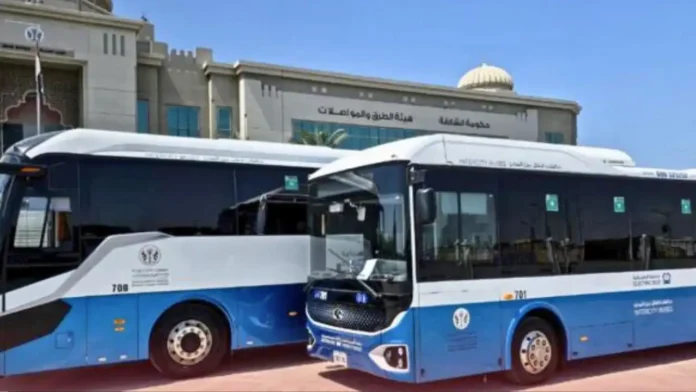
In a significant stride towards sustainable urban mobility, Sharjah‘s Roads and Transport Authority (SRTA) has unveiled the first phase of its electric bus operations.
This initiative, which introduces ten electric buses operating across three intercity routes, marks a critical step in the emirate’s commitment to the Climate Neutrality 2050 initiative. With this move, Sharjah aims to enhance its public transport system while minimizing its environmental footprint.
The introduction of electric buses reflects Sharjah’s broader strategy to promote green public transportation and achieve environmental sustainability.
According to SRTA, the electric buses will serve as a vital link in reducing greenhouse gas emissions, aligning with global efforts to combat climate change.
This launch not only underscores Sharjah’s dedication to clean energy but also positions the emirate as a leader in sustainable transport solutions in the region.
In a recent development, Abu Dhabi also joined the movement towards sustainable transport by launching ‘green’ buses on September 12, comprising both electric and hydrogen-powered vehicles.
Anan Alamri, section head at the ITC’s Alternative Sustainable Mobility, highlighted the significance of such initiatives during ‘The Journey to Net Zero Forum’ organized by Khaleej Times on August 27.
The electric buses in Abu Dhabi, specifically operating on Route 65 between Marina Mall and Shams Boutik in Al Reem Island, represent a shift from traditional fossil fuel vehicles.
Unlike their diesel counterparts, these hydrogen-powered and electric buses produce no harmful pollutants, with hydrogen-powered vehicles emitting only water vapor.
This transition to renewable energy sources is expected to lead to a substantial reduction in carbon dioxide emissions—projected to drop by over 100,000 metric tonnes annually in Abu Dhabi, as reported by WAM.
Sharjah’s electric buses are not just a local achievement but part of a larger commitment across the UAE to foster sustainable development, enhance public transportation infrastructure, and address the pressing challenge of climate change.
As these initiatives unfold, they will undoubtedly pave the way for a greener, cleaner future for the region.



